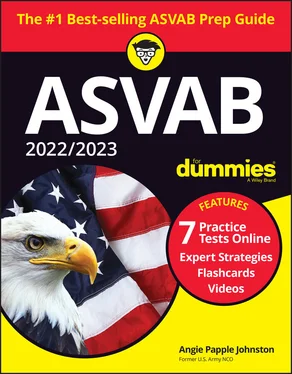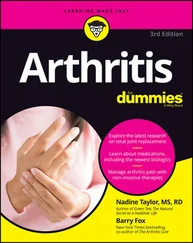| Suffix |
Part of Speech It Indicates |
Meaning |
Original Word: Suffixed Word |
| -able or -ible |
Adjective |
capable of |
agree: agreeable |
| -age |
Noun |
act of |
break: breakage |
| -al |
Adjective |
relating to |
function: functional |
| -ance or -ence |
Noun |
instance of an action |
perform: performance |
| -ation |
Noun |
action, process |
liberate: liberation |
| -en |
Adjective, verb |
made from |
silk: silken |
| -ful |
Adjective |
full of |
help: helpful |
| -ic |
Adjective |
relating to, like |
anemia: anemic |
| -ical |
Adjective |
possessing a quality of |
magic: magical |
| -ion |
Noun |
result of, act of |
legislate: legislation |
| -ish |
Adjective, noun |
resembling |
child: childish |
| -ism |
Noun |
condition or manner |
hero: heroism |
| -ist |
Noun |
one who or that which does |
anarchy: anarchist |
| -ity |
Noun |
quality of or state of |
dense: density |
| -less |
Adjective, noun |
not having |
worth: worthless |
| -let |
Noun |
small one |
book: booklet |
| -ly |
Adjective, adverb |
like |
fearless: fearlessly |
| -ment |
Noun |
act or process of |
establish: establishment |
| -ness |
Adjective, noun |
possessing a quality |
good: goodness |
| -or, -er |
Noun |
one who does a thing |
orate: orator |
| -ous |
Adjective |
state of |
danger: dangerous |
 If you memorize prefixes, suffixes, and roots, you have a better chance of figuring out the meaning of an unfamiliar word when you see it on the ASVAB. Figuring out the meaning of unfamiliar words is how people with large vocabularies make them even larger. (They look up words in the dictionary, too.)
If you memorize prefixes, suffixes, and roots, you have a better chance of figuring out the meaning of an unfamiliar word when you see it on the ASVAB. Figuring out the meaning of unfamiliar words is how people with large vocabularies make them even larger. (They look up words in the dictionary, too.)
Determining the root of the problem
Root words are word parts that serve as the base of a word. In English, one root word can be changed slightly to perform all sorts of roles — it can act as a noun, a verb, an adjective, or an adverb with just a little modification. If you recognize a root, you can generally get an idea of what the word means, even if you’re not familiar with it. For example, if you know what the root word attach means, you can figure out what the word attachment means. If you know adhere, you can deduce what adherence means.
Table 4-4lists some common roots. Memorize them. When you sit down to take the ASVAB, you’ll be glad you did.
TABLE 4-4Roots
| Root |
Meaning |
Sample Word |
| anthro or anthrop |
relating to humans |
anthropology |
| bibl |
relating to books |
bibliography |
| brev |
short |
abbreviate |
| cede or ceed |
go, yield |
recede |
| chrom |
color |
monochrome |
| cogn |
know |
cognizant |
| corp |
body |
corporate |
| dict |
speak |
diction |
| domin |
rule |
dominate |
| flu or fluc |
flow |
influx |
| form |
shape |
formulate |
| fract or frag |
break |
fragment |
| graph |
writing |
biography |
| junct |
join |
juncture |
| liber |
free |
liberate |
| lum or lumen |
light |
illuminate |
| oper |
work |
cooperate |
| path or pathy |
suffer, feeling |
pathology |
| port |
carry |
portable |
| press |
squeeze |
repress |
| scrib or script |
write |
describe |
| sens or sent |
feel |
sentient |
| tract |
pull |
traction |
| voc or vok |
call |
revoke |
 When you see an unfamiliar word, try dropping a couple of letters from the beginning and/or the end of the word to see whether you recognize what’s left — the root. If so, you can make a good guess about the meaning of the word. You can find more root words to help maximize your vocabulary in Appendix C.
When you see an unfamiliar word, try dropping a couple of letters from the beginning and/or the end of the word to see whether you recognize what’s left — the root. If so, you can make a good guess about the meaning of the word. You can find more root words to help maximize your vocabulary in Appendix C.
Word families: Finding related words
When you see an unfamiliar word on the Word Knowledge section, don’t get upset and pound on the computer (they make you pay for those things if you break them). You may know the word after all — just in a different form. Suppose you run across the word beneficent on the Word Knowledge portion:
 Beneficent most nearly means
Beneficent most nearly means
(A) kind.
(B) beautiful.
(C) unhappy.
(D) troubled.
You sit there and begin to sweat. You’ve never seen the word before, and it’s all over for you, right? Well, maybe not. Take a closer look. What other word starting with the letters benefi do you know? How about the word benefit? A benefit is something that helps or aids. It’d be a good bet that the word beneficent is related to helping or aiding. So, when you look over the possible choices, you can choose the one that has something to do with helping.
But wait! None of the answers states help or aid. Now what? Just use the process of elimination. If someone is helpful (beneficent), they probably aren’t troubled or unhappy. They may be beautiful, but more likely, they’re kind. So, the best answer would be Choice (A).
 Remember when your high school guidance counselor recommended that you take French or Spanish? You should thank them when you score well on this subtest. Why? Because knowledge of other languages can help you puzzle out the meaning of many English words. For example, if you know that salud means “health” in Spanish, you may be able to puzzle out the meaning of the English word salutary (favorable to or promoting health). Knowing that sang means “blood” in French may help you figure out what the English word sanguine means (try to puzzle this one out on your own; then check a dictionary to see how close you are).
Remember when your high school guidance counselor recommended that you take French or Spanish? You should thank them when you score well on this subtest. Why? Because knowledge of other languages can help you puzzle out the meaning of many English words. For example, if you know that salud means “health” in Spanish, you may be able to puzzle out the meaning of the English word salutary (favorable to or promoting health). Knowing that sang means “blood” in French may help you figure out what the English word sanguine means (try to puzzle this one out on your own; then check a dictionary to see how close you are).
Pulling apart words is a great strategy when you’re not sure what something means. Even knowing what part of a word means can help you make a smarter choice — and on the ASVAB, every question counts.
Try to pull apart the word in this question to see whether you can figure out its meaning.
 Detractor most nearly means
Detractor most nearly means
Читать дальше

 If you memorize prefixes, suffixes, and roots, you have a better chance of figuring out the meaning of an unfamiliar word when you see it on the ASVAB. Figuring out the meaning of unfamiliar words is how people with large vocabularies make them even larger. (They look up words in the dictionary, too.)
If you memorize prefixes, suffixes, and roots, you have a better chance of figuring out the meaning of an unfamiliar word when you see it on the ASVAB. Figuring out the meaning of unfamiliar words is how people with large vocabularies make them even larger. (They look up words in the dictionary, too.) Beneficent most nearly means
Beneficent most nearly means










